The document is an introduction to Python, highlighting its dynamic typing, readability, and versatility across multiple programming paradigms. It covers various concepts such as basic data types, control structures, functions, classes, modules, and exception handling, along with practical examples. The tutorial aims to provide a comprehensive overview for learners and developers interested in using Python for various applications.
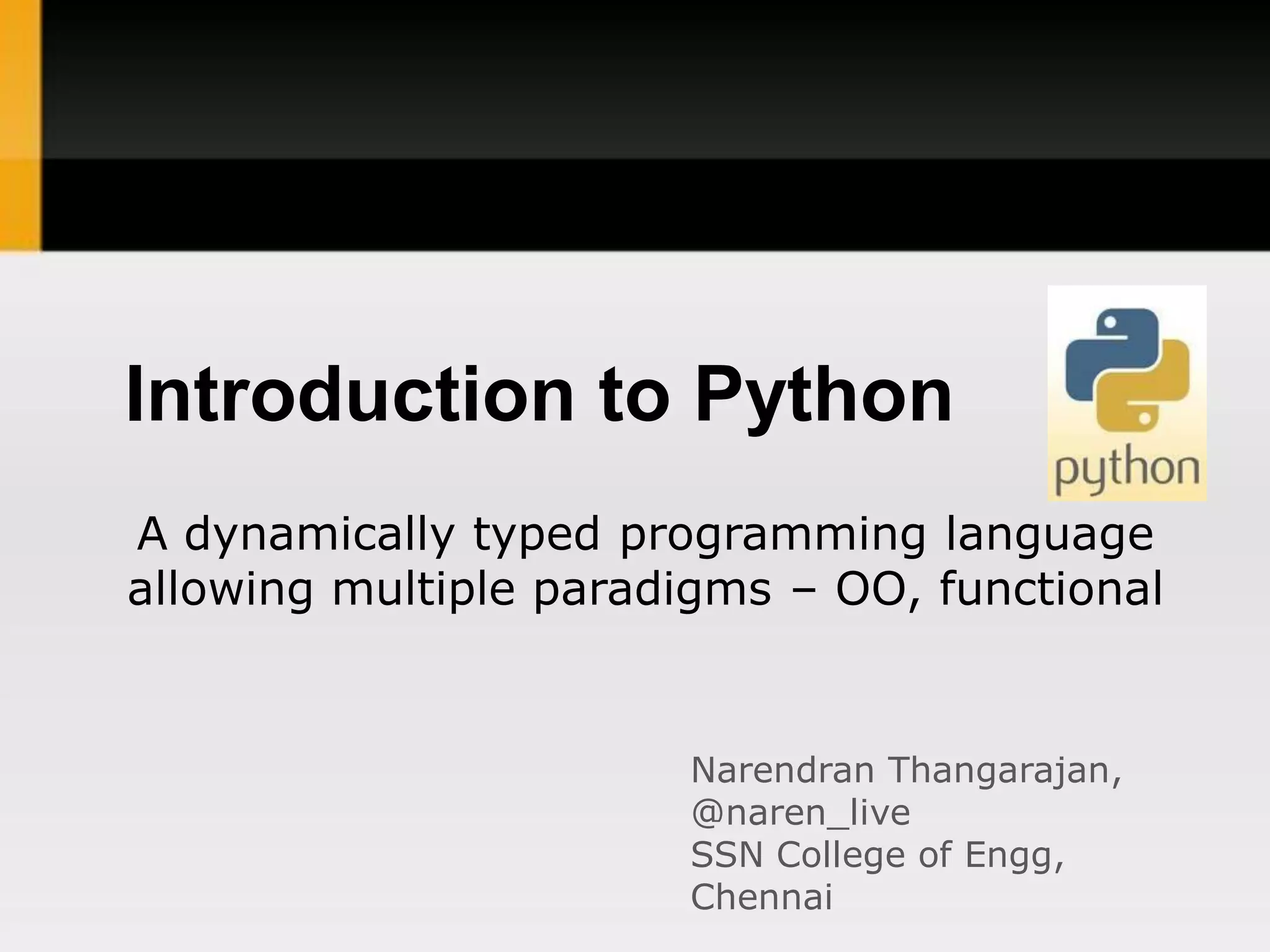
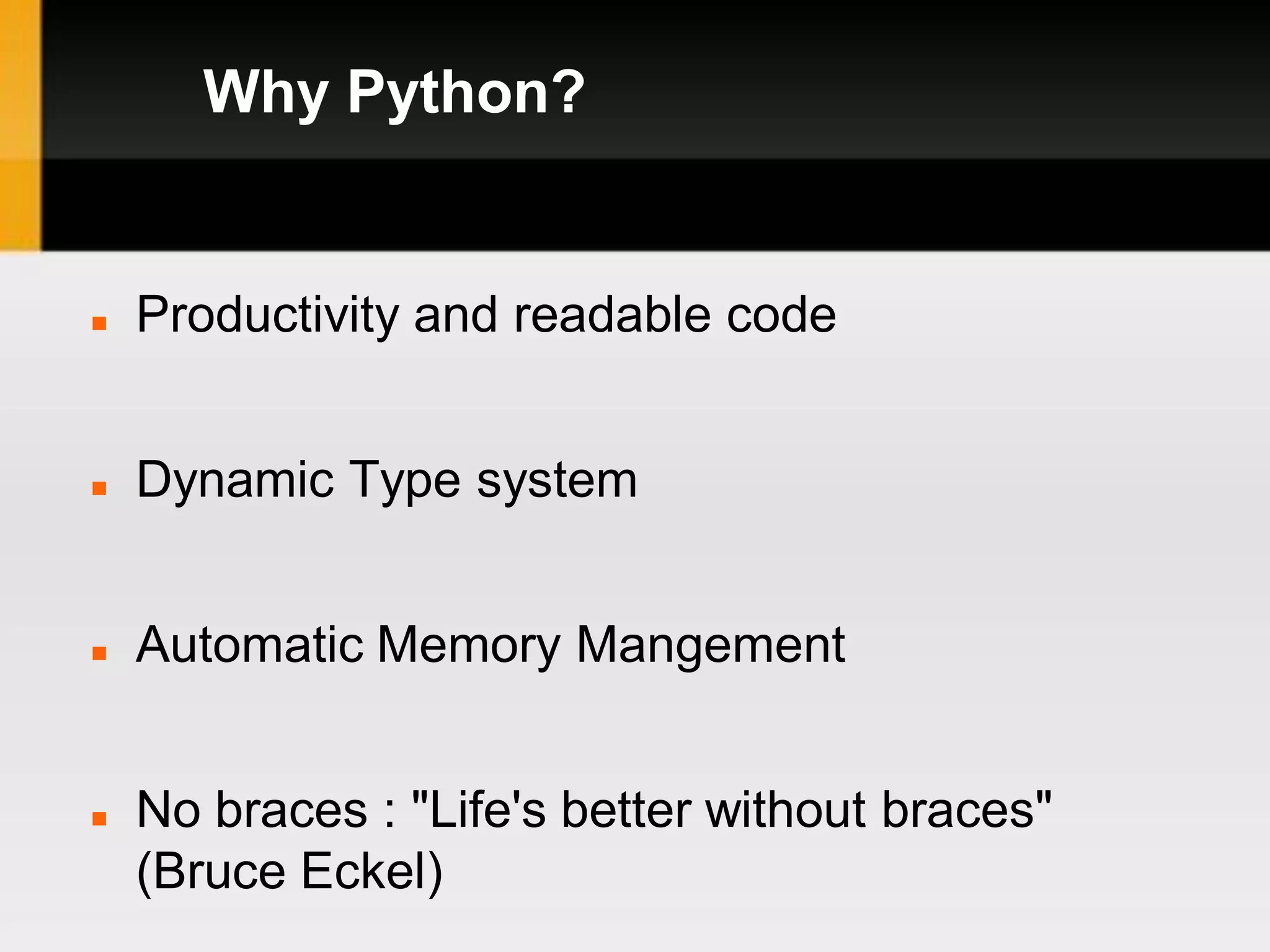
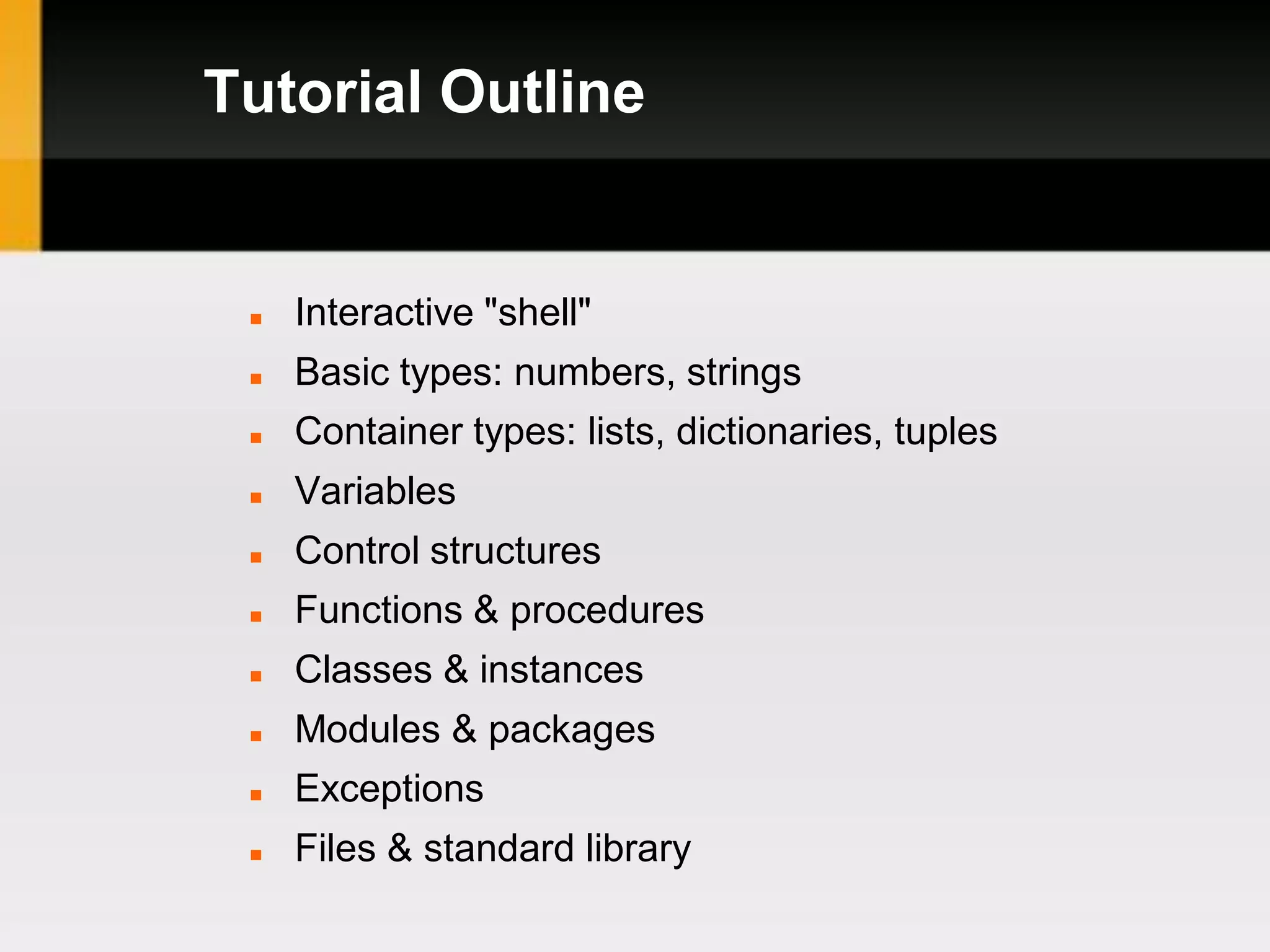
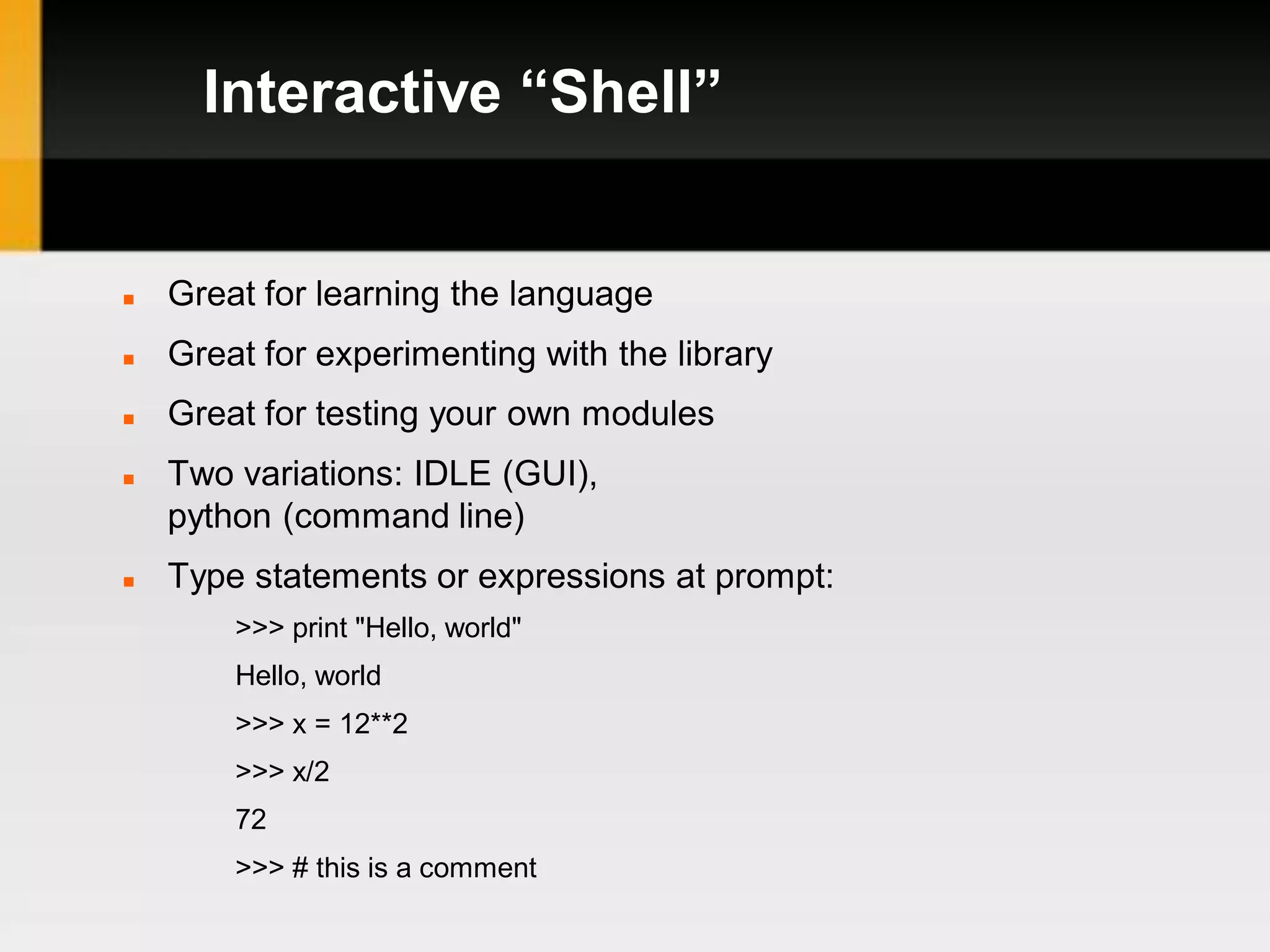
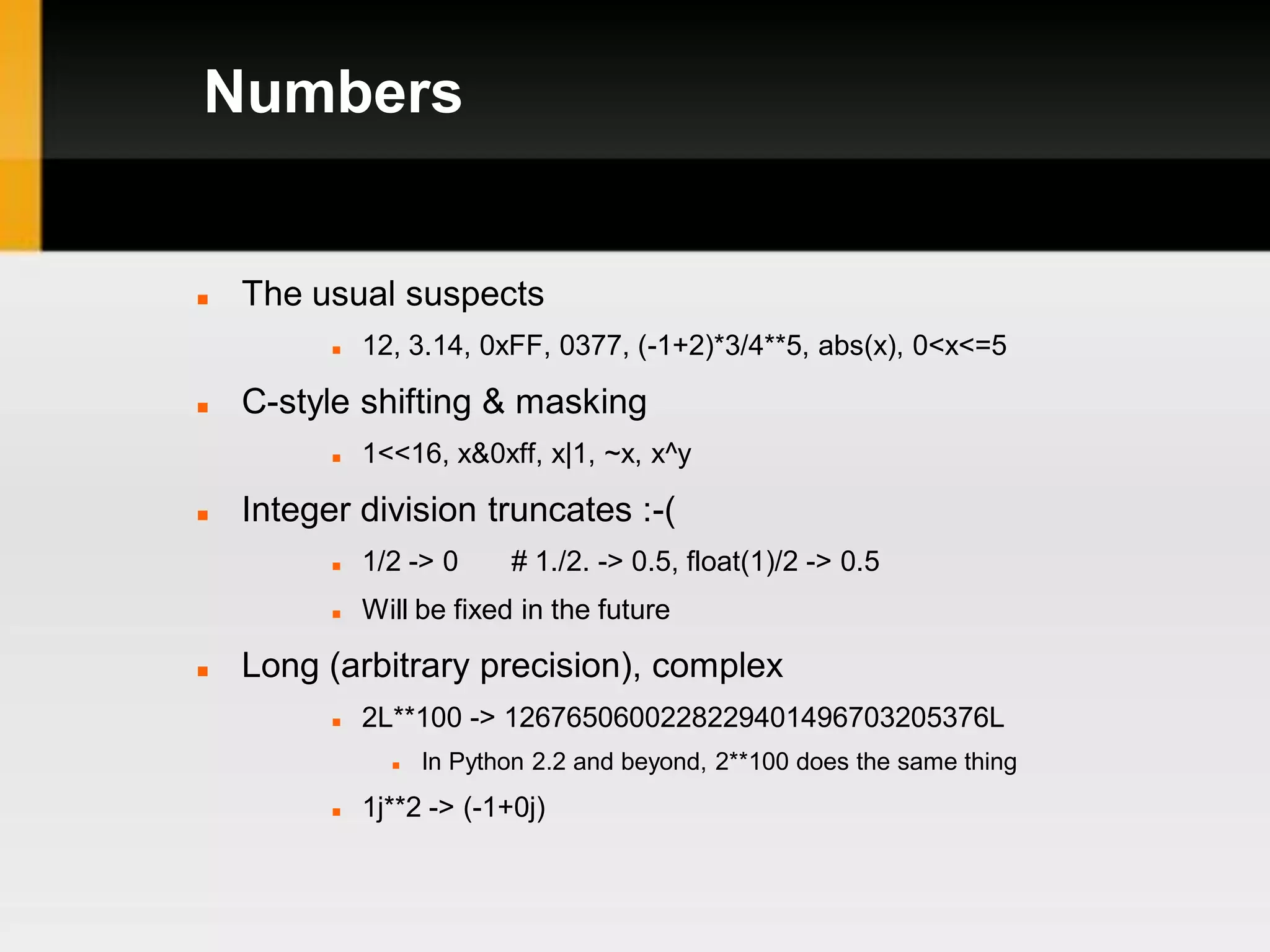
![Strings
"hello"+"world" "helloworld" #
concatenation
"hello"*3 "hellohellohello" # repetition
"hello"[0] "h" # indexing
"hello"[-1] "o" # (from end)
"hello"[1:4] "ell" # slicing
len("hello") 5 # size
"hello" < "jello" 1 # comparison
"e" in "hello" 1 # search
"escapes: n etc, 033 etc, if etc"
'single quotes' """triple quotes""" r"raw strings"](https://image.slidesharecdn.com/introductiontopython-111006011932-phpapp01/75/Introduction-to-Python-6-2048.jpg)
![Lists
Flexible arrays, not Lisp-like linked lists
a = [99, "bottles of beer", ["on", "the", "wall"]]
Same operators as for strings
a+b, a*3, a[0], a[-1], a[1:], len(a)
Item and slice assignment
a[0] = 98
a[1:2] = ["bottles", "of", "beer"]
-> [98, "bottles", "of", "beer", ["on", "the", "wall"]]
del a[-1] # -> [98, "bottles", "of", "beer"]](https://image.slidesharecdn.com/introductiontopython-111006011932-phpapp01/75/Introduction-to-Python-7-2048.jpg)
![More List Operations
>>> a = range(5) # [0,1,2,3,4]
>>> a.append(5) # [0,1,2,3,4,5]
>>> a.pop() # [0,1,2,3,4]
5
>>> a.insert(0, 42) # [42,0,1,2,3,4]
>>> a.pop(0) # [0,1,2,3,4]
5.5
>>> a.reverse() # [4,3,2,1,0]
>>> a.sort() # [0,1,2,3,4]](https://image.slidesharecdn.com/introductiontopython-111006011932-phpapp01/75/Introduction-to-Python-8-2048.jpg)
![Dictionaries
Hash tables, "associative arrays"
d = {"duck": "eend", "water": "water"}
Lookup:
d["duck"] -> "eend"
d["back"] # raises KeyError exception
Delete, insert, overwrite:
del d["water"] # {"duck": "eend", "back": "rug"}
d["back"] = "rug" # {"duck": "eend", "back": "rug"}
d["duck"] = "duik" # {"duck": "duik", "back": "rug"}](https://image.slidesharecdn.com/introductiontopython-111006011932-phpapp01/75/Introduction-to-Python-9-2048.jpg)
![More Dictionary Ops
Keys, values, items:
d.keys() -> ["duck", "back"]
d.values() -> ["duik", "rug"]
d.items() -> [("duck","duik"), ("back","rug")]
Presence check:
d.has_key("duck") -> 1; d.has_key("spam") ->
0
Values of any type; keys almost any
{"name":"Guido", "age":43, ("hello","world"):1,
42:"yes", "flag": ["red","white","blue"]}](https://image.slidesharecdn.com/introductiontopython-111006011932-phpapp01/75/Introduction-to-Python-10-2048.jpg)
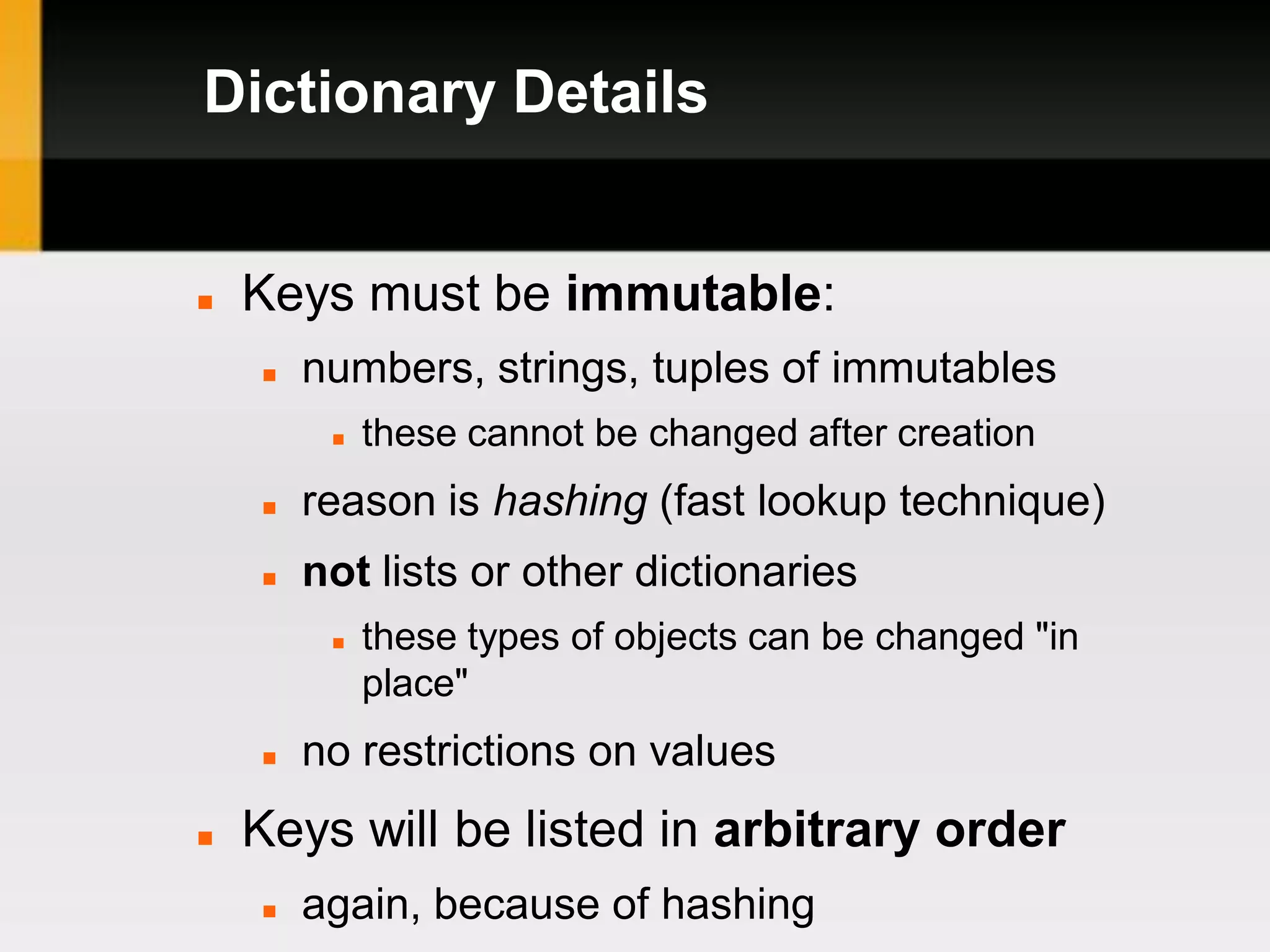
![Tuples
key = (lastname, firstname)
point = x, y, z # parentheses optional
x, y, z = point # unpack
lastname = key[0]
singleton = (1,) # trailing comma!!!
empty = () # parentheses!
tuples vs. lists; tuples immutable](https://image.slidesharecdn.com/introductiontopython-111006011932-phpapp01/75/Introduction-to-Python-12-2048.jpg)
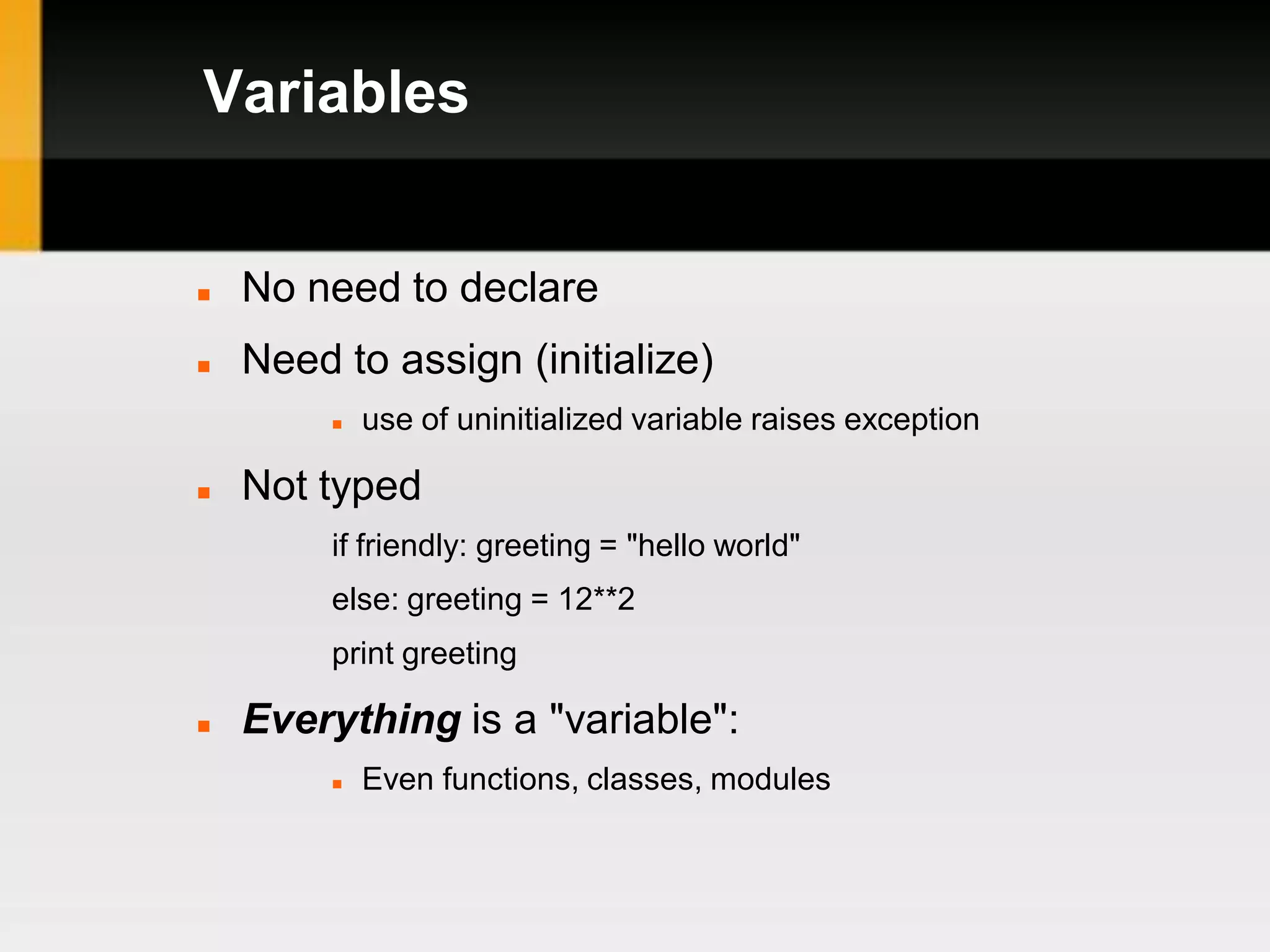
![Reference Semantics
Assignment manipulates references
x = y does not make a copy of y
x = y makes x reference the object y references
Very useful; but beware!
Example:
>>> a = [1, 2, 3]
>>> b = a
>>> a.append(4)
>>> print b
[1, 2, 3, 4]](https://image.slidesharecdn.com/introductiontopython-111006011932-phpapp01/75/Introduction-to-Python-14-2048.jpg)
![Changing a Shared List
a = [1, 2, 3] a 1 2 3
a
b=a 1 2 3
b
a
a.append(4) 1 2 3 4
b](https://image.slidesharecdn.com/introductiontopython-111006011932-phpapp01/75/Introduction-to-Python-15-2048.jpg)
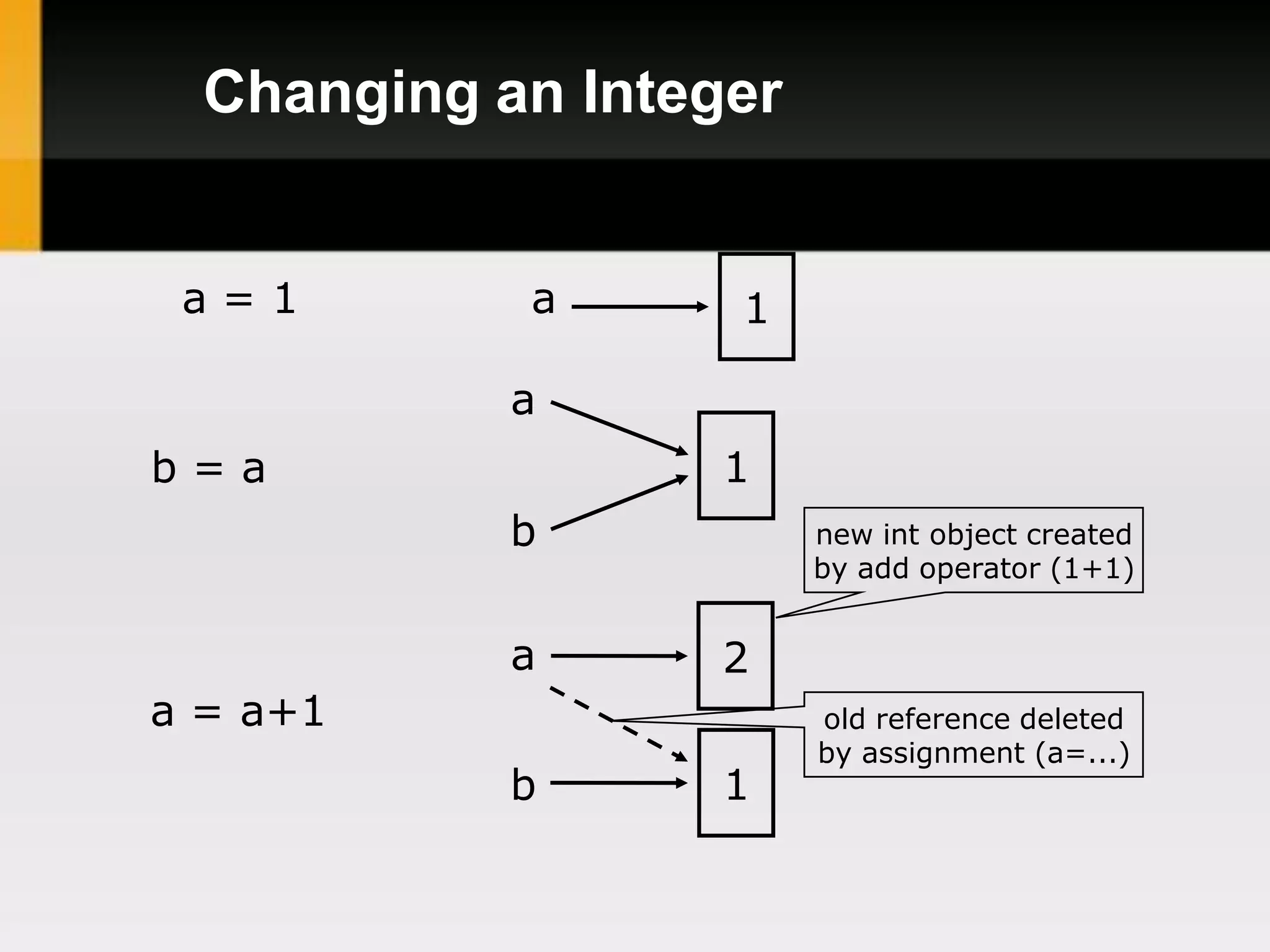
![Control Structures
if condition: while condition:
statements
statements
[elif condition:
for var in sequence:
statements] ...
else: statements
statements break
continue](https://image.slidesharecdn.com/introductiontopython-111006011932-phpapp01/75/Introduction-to-Python-17-2048.jpg)
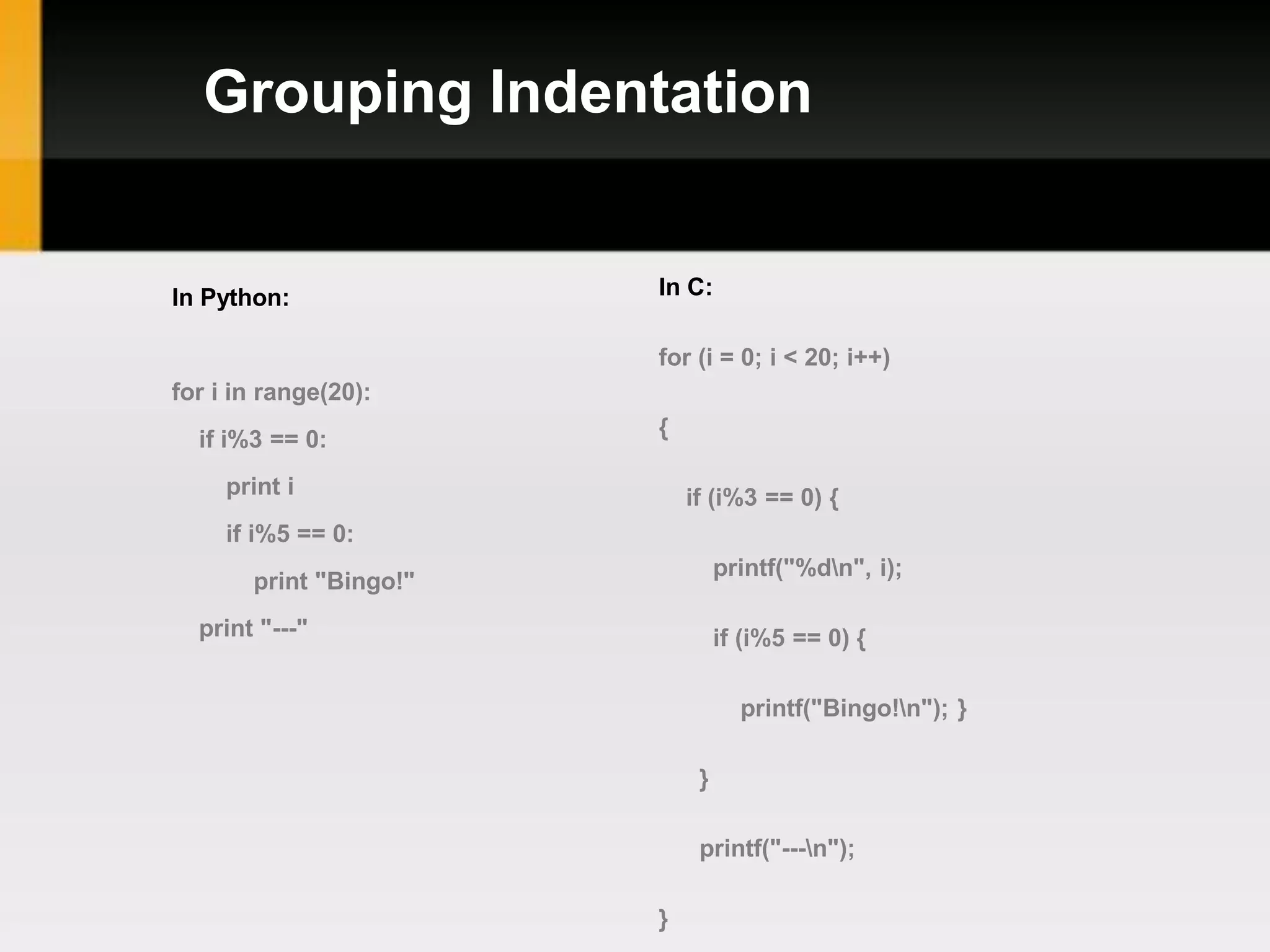
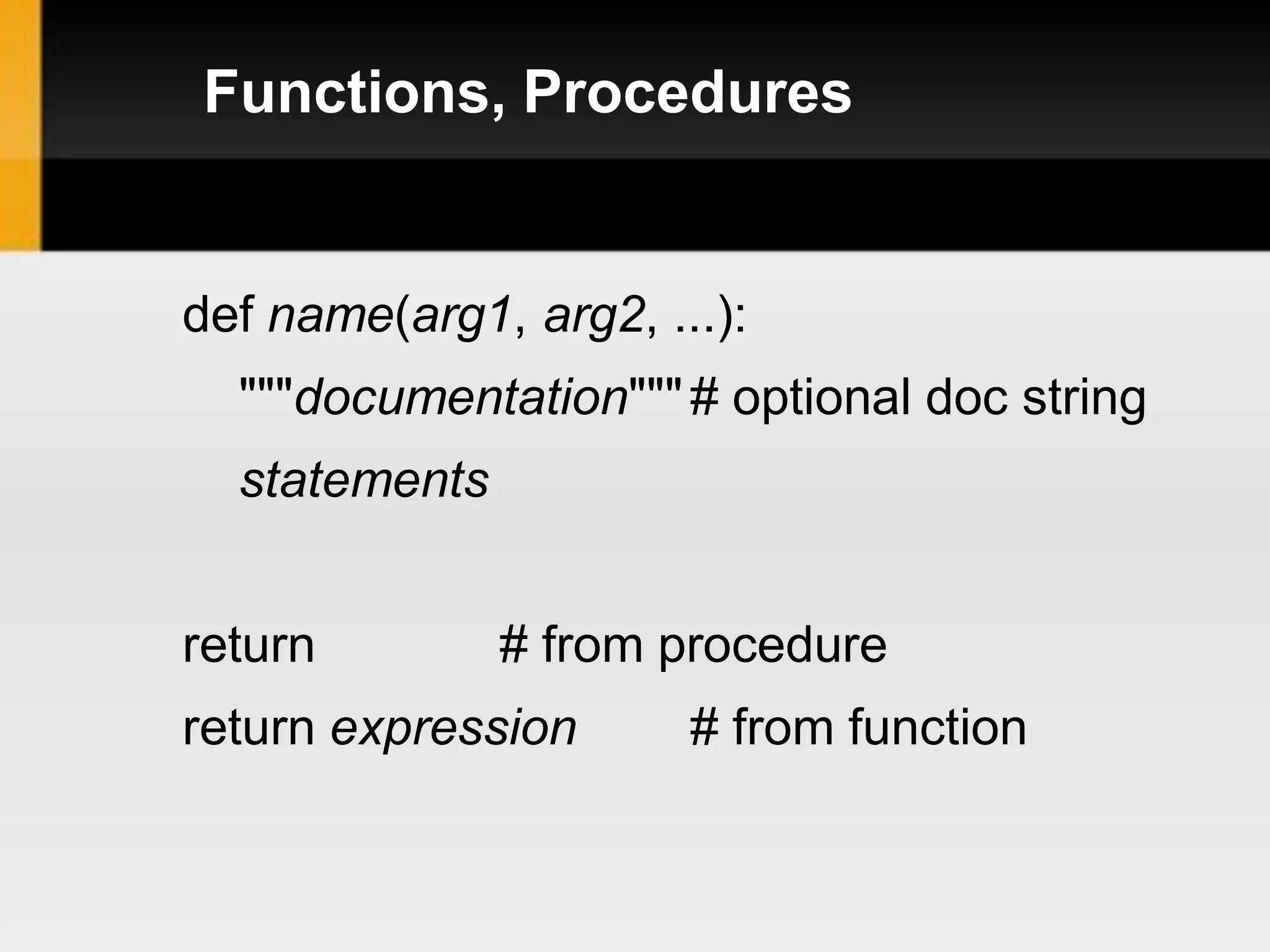
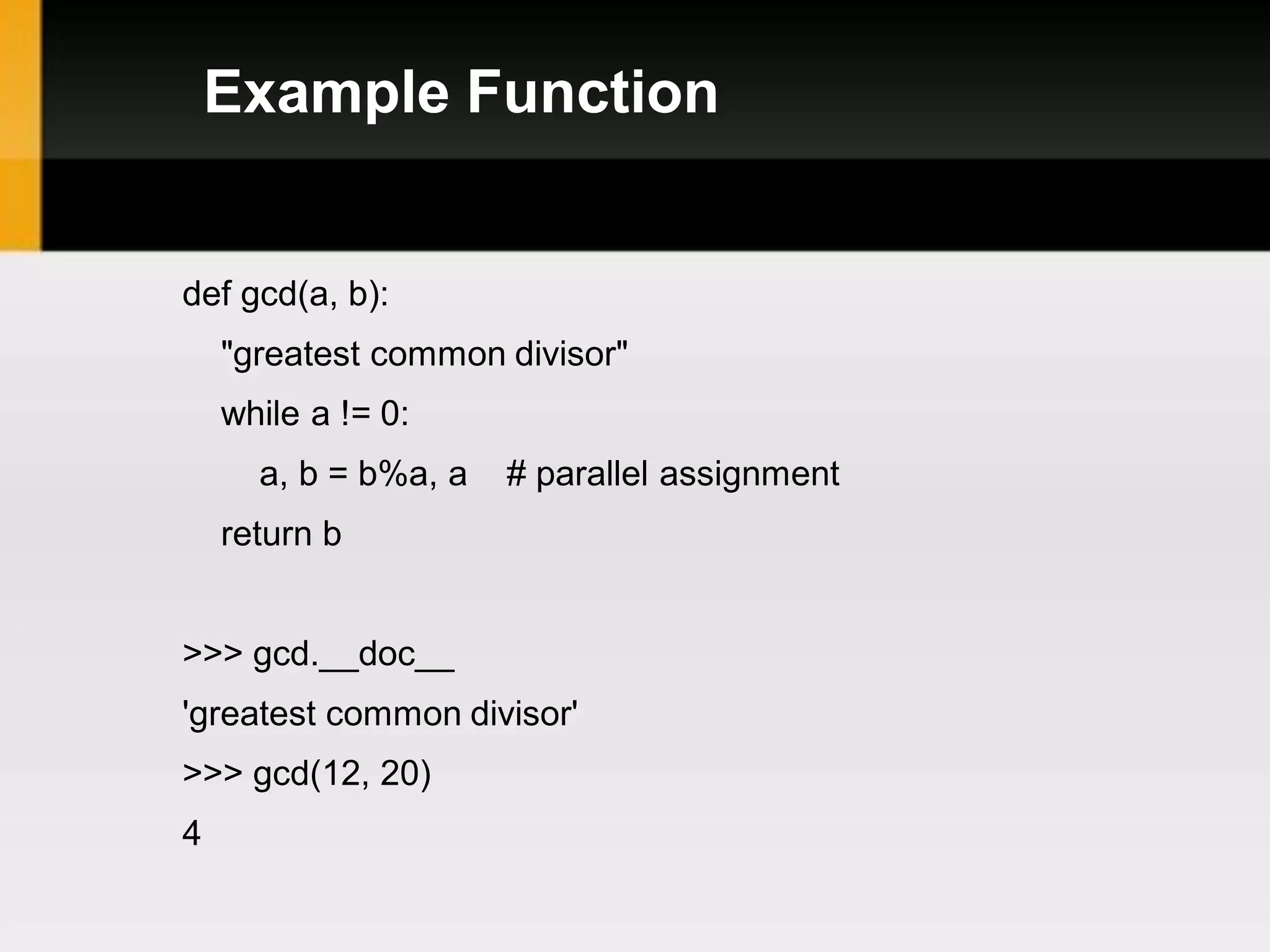
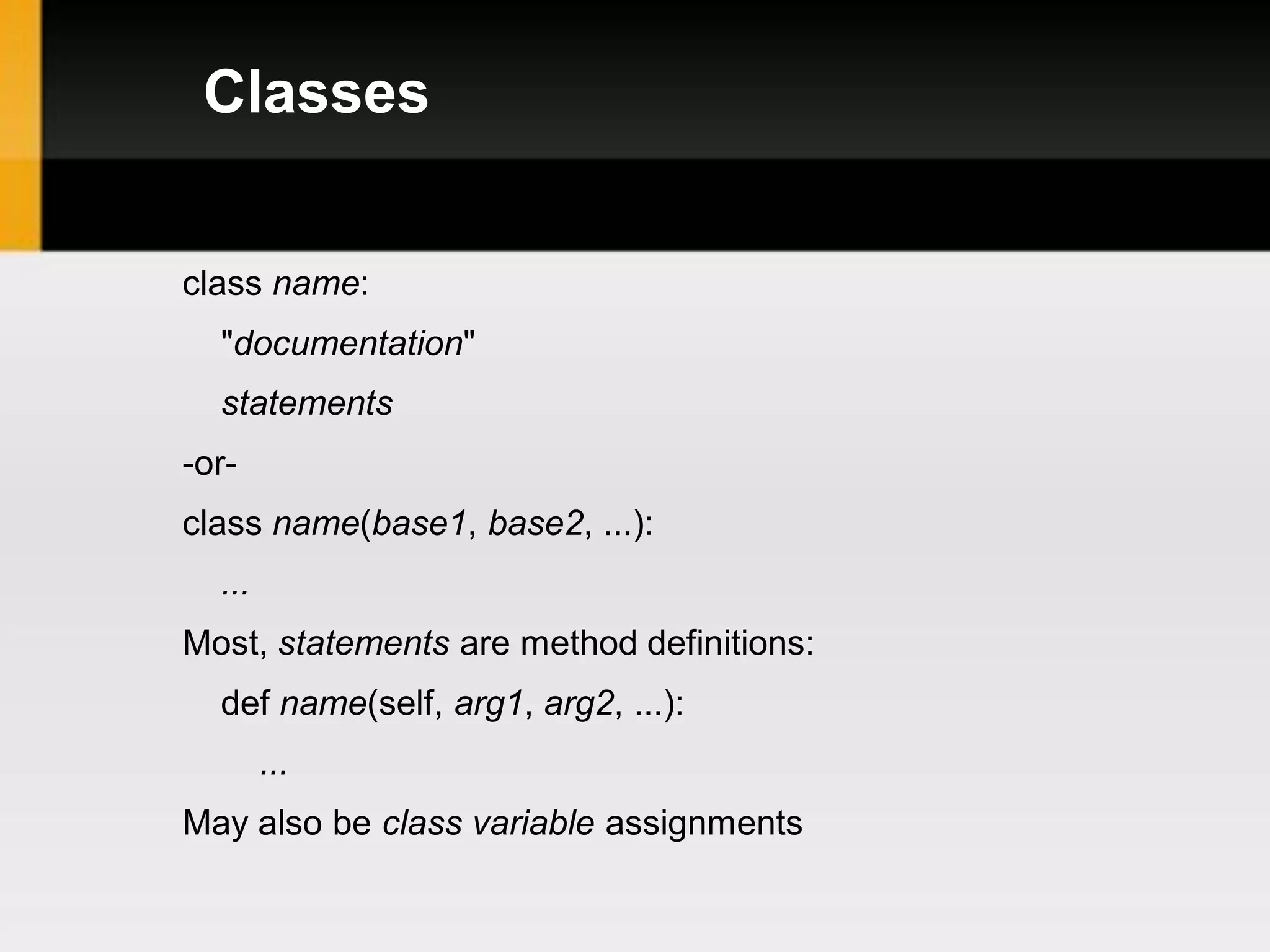
![Example Class
class Stack:
"A well-known data structure…"
def __init__(self): # constructor
self.items = []
def push(self, x):
self.items.append(x) # the sky is the limit
def pop(self):
x = self.items[-1] # what happens if it’s empty?
del self.items[-1]
return x
def empty(self):
return len(self.items) == 0 # Boolean result](https://image.slidesharecdn.com/introductiontopython-111006011932-phpapp01/75/Introduction-to-Python-22-2048.jpg)
![Using Classes
To create an instance, simply call the class object:
x = Stack()# no 'new' operator!
To use methods of the instance, call using dot notation:
x.empty() # -> 1
x.push(1) # [1]
x.empty() # -> 0
x.push("hello") # [1, "hello"]
x.pop() # -> "hello" # [1]
To inspect instance variables, use dot notation:
x.items # -> [1]](https://image.slidesharecdn.com/introductiontopython-111006011932-phpapp01/75/Introduction-to-Python-23-2048.jpg)
![Subclassing
class FancyStack(Stack):
"stack with added ability to inspect inferior stack items"
def peek(self, n):
"peek(0) returns top; peek(-1) returns item below that; etc."
size = len(self.items)
assert 0 <= n < size # test precondition
return self.items[size-1-n]](https://image.slidesharecdn.com/introductiontopython-111006011932-phpapp01/75/Introduction-to-Python-24-2048.jpg)
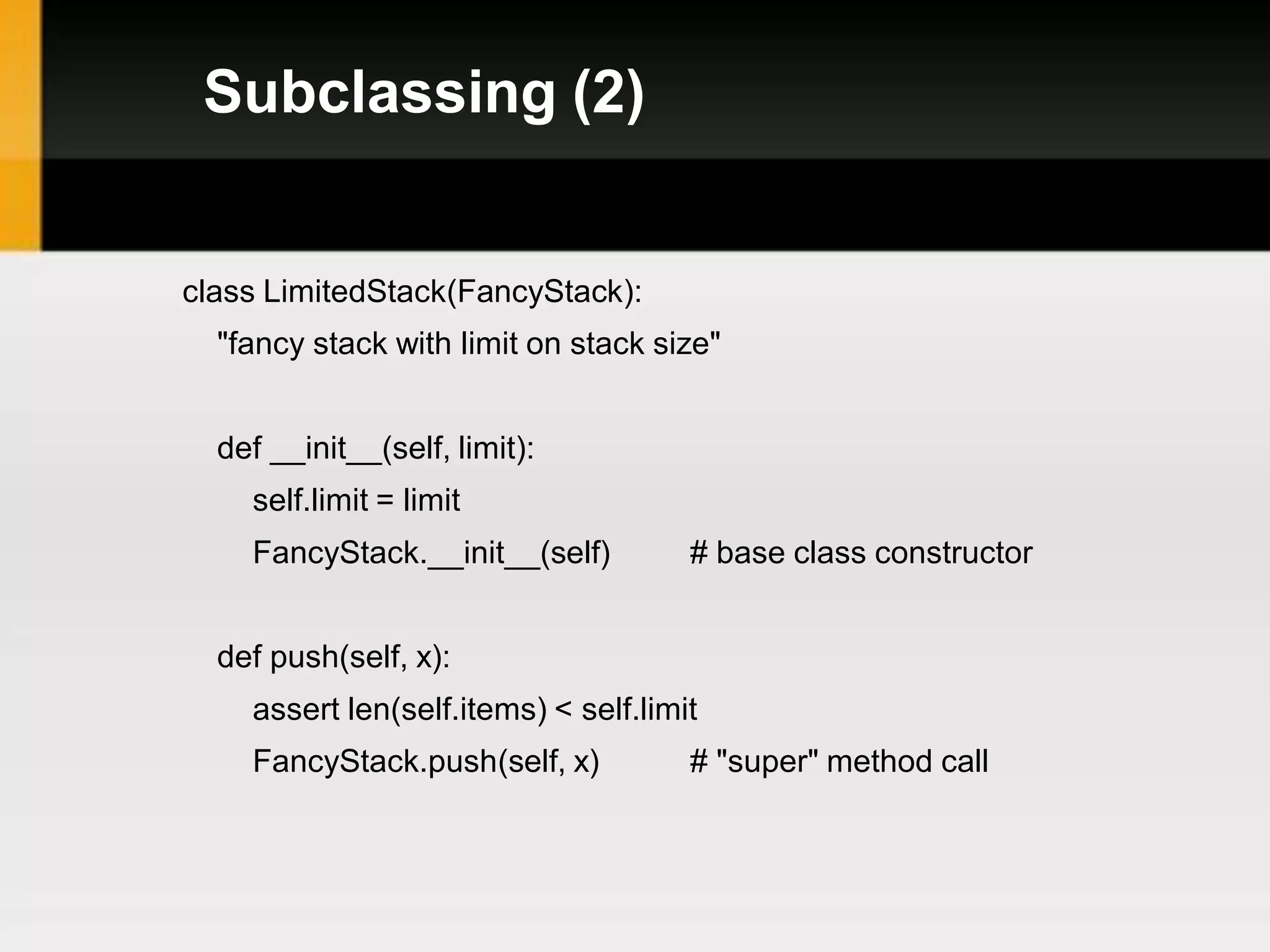
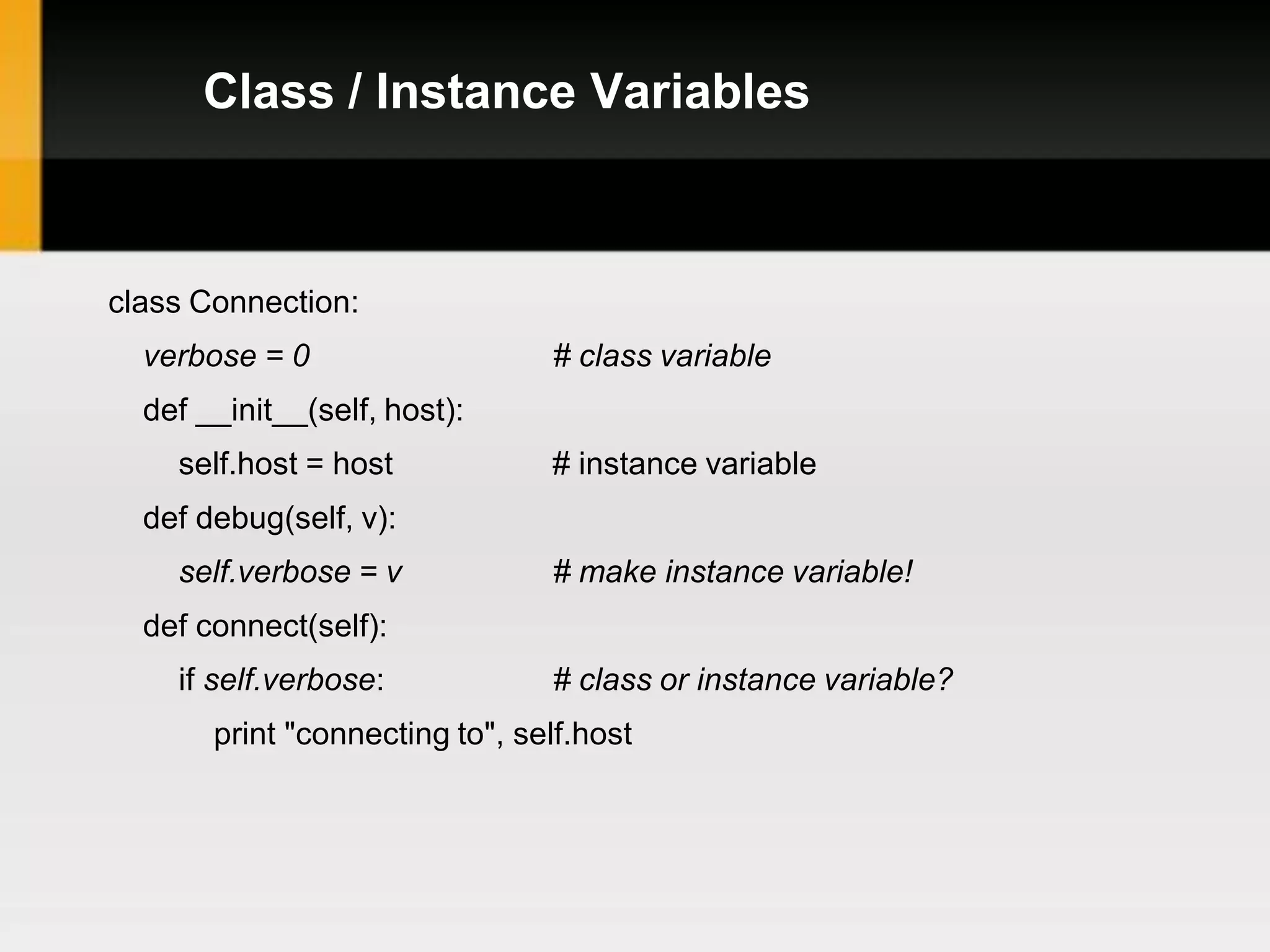
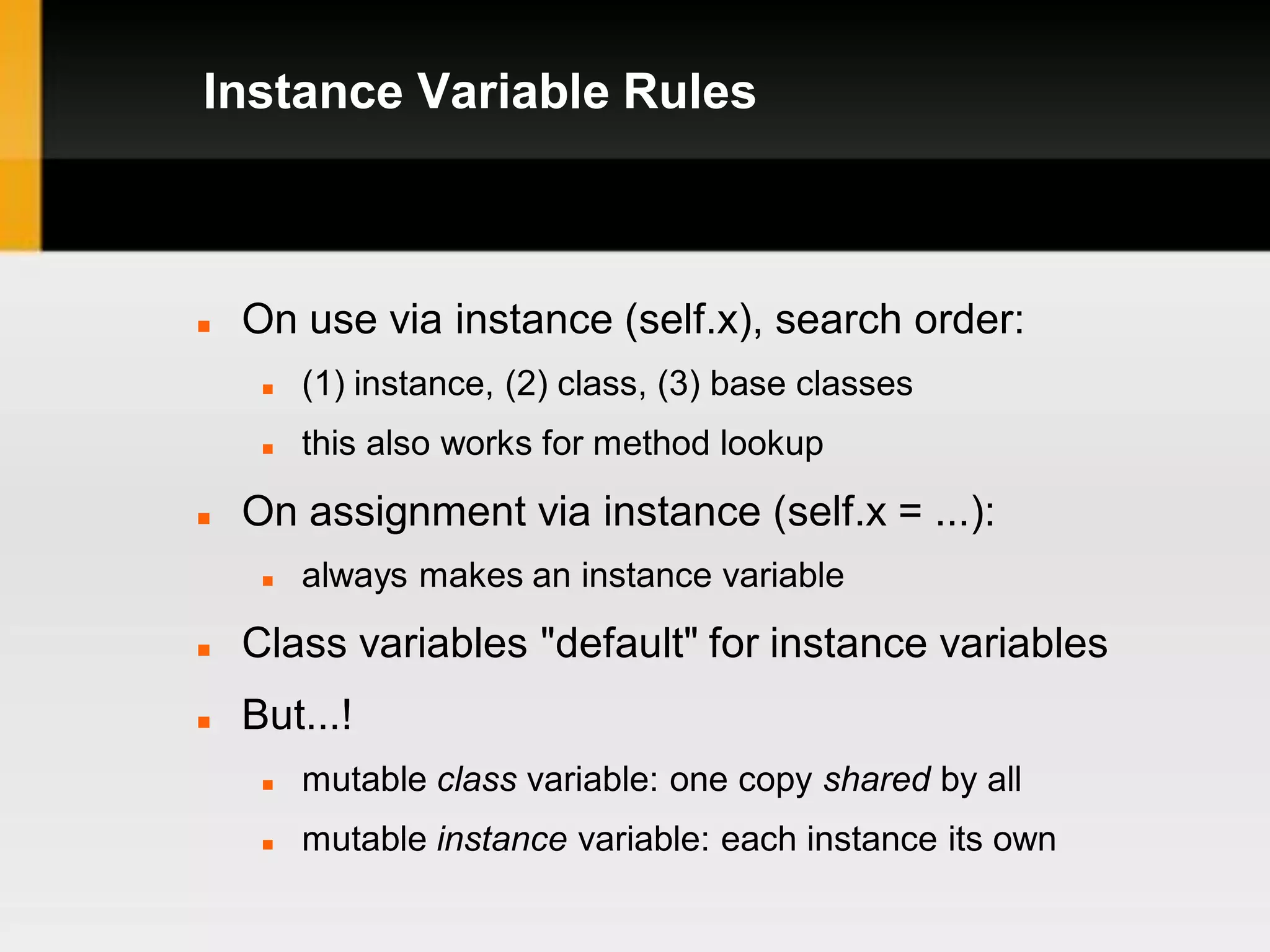
![Modules
Collection of stuff in foo.py file
functions, classes, variables
Importing modules:
import re; print re.match("[a-z]+", s)
from re import match; print match("[a-z]+", s)
Import with rename:
import re as regex
from re import match as m
Before Python 2.0:
import re; regex = re; del re](https://image.slidesharecdn.com/introductiontopython-111006011932-phpapp01/75/Introduction-to-Python-28-2048.jpg)
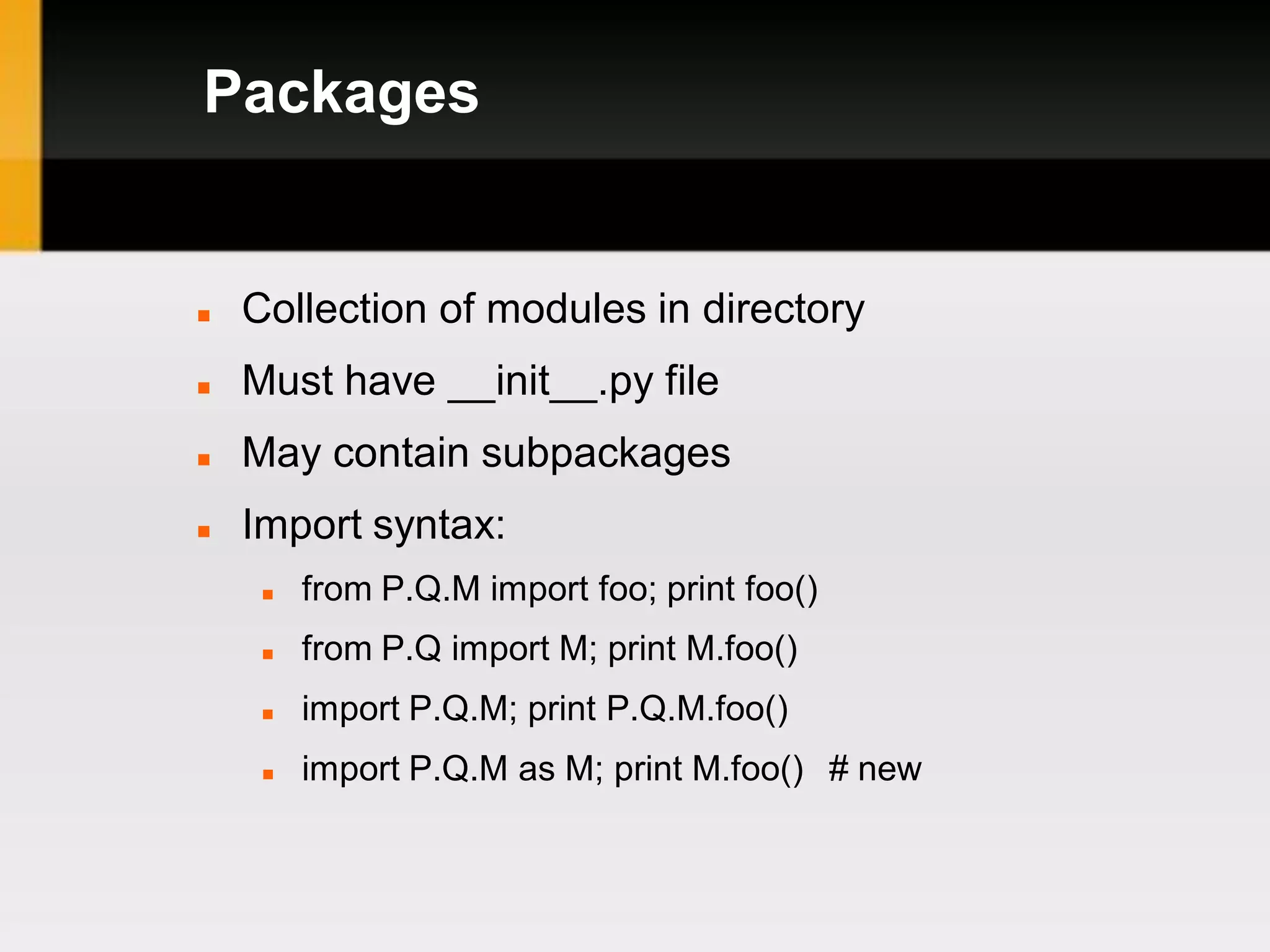
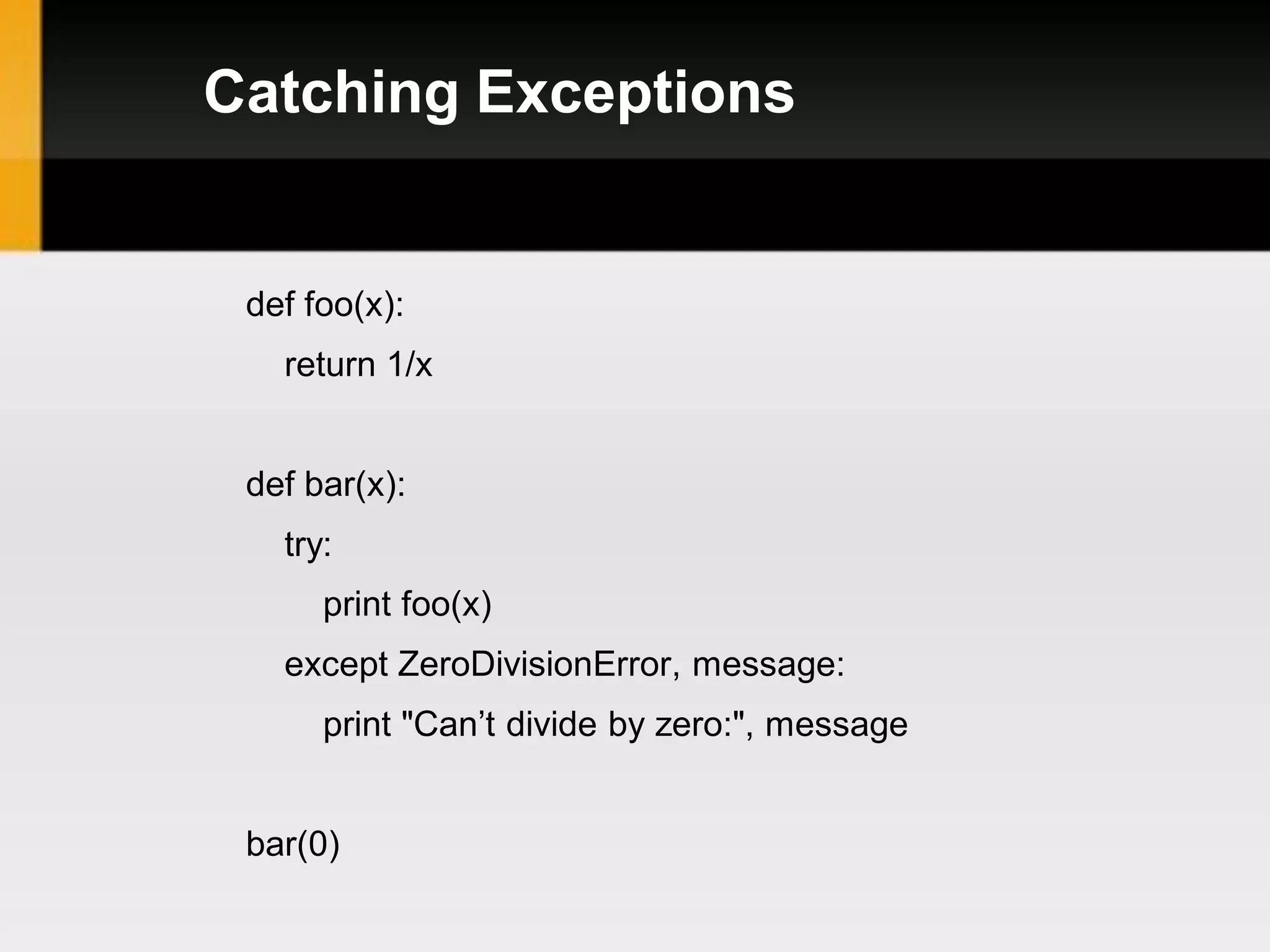
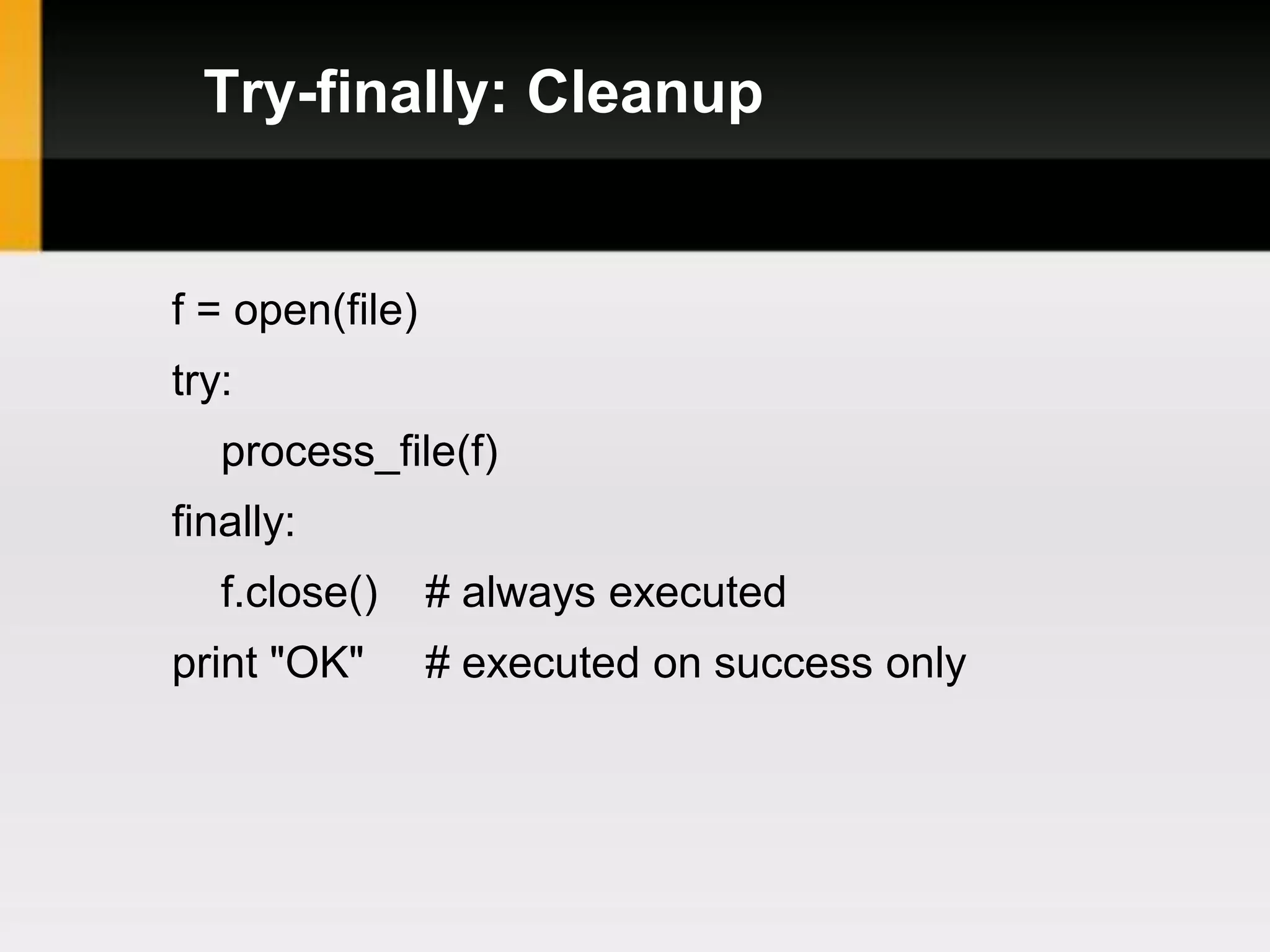
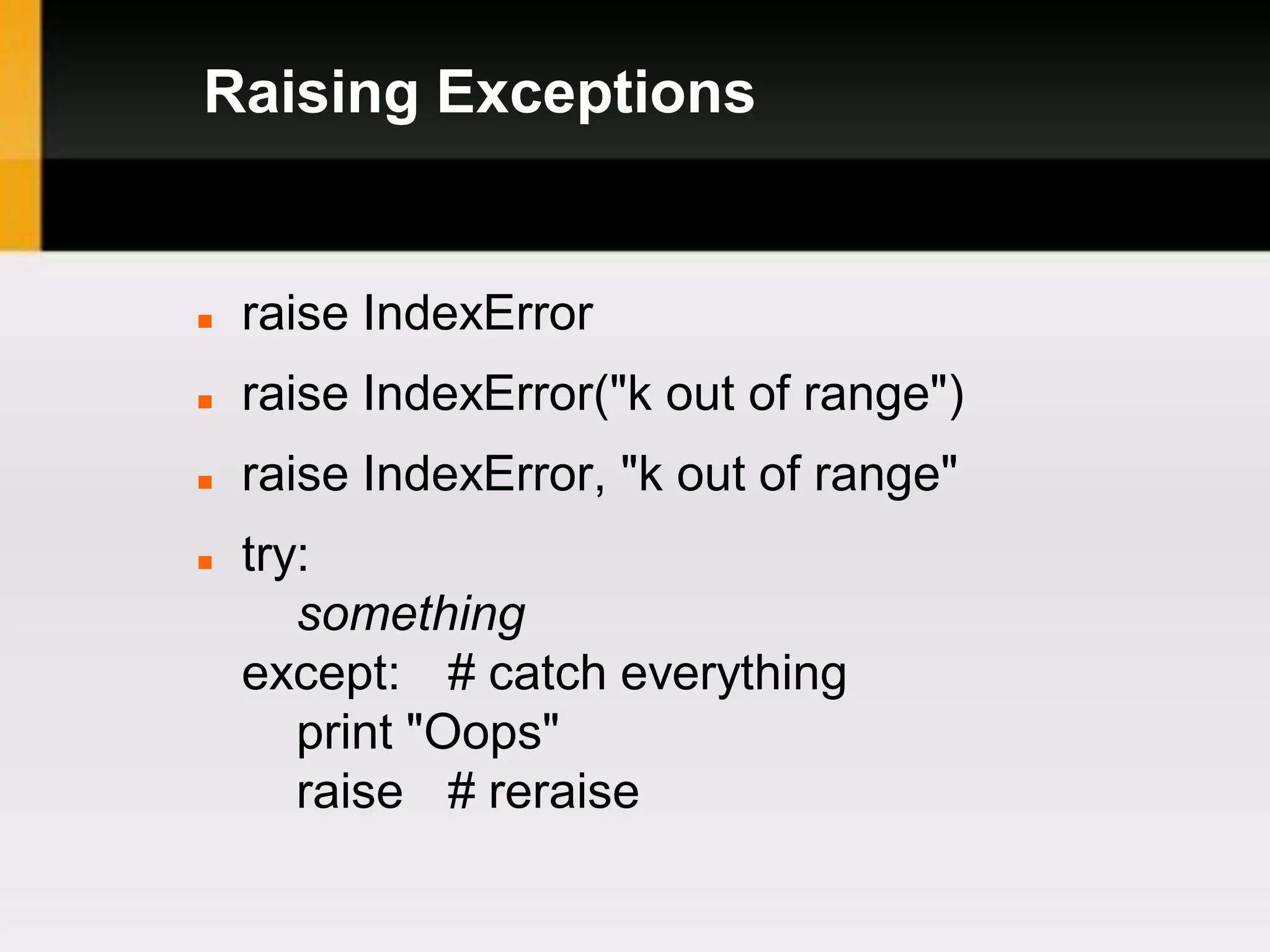
![File Objects
f = open(filename[, mode[, buffersize])
mode can be "r", "w", "a" (like C stdio); default "r"
append "b" for text translation mode
append "+" for read/write open
buffersize: 0=unbuffered; 1=line-buffered; buffered
methods:
read([nbytes]), readline(), readlines()
write(string), writelines(list)
seek(pos[, how]), tell()
flush(), close()
fileno()](https://image.slidesharecdn.com/introductiontopython-111006011932-phpapp01/75/Introduction-to-Python-33-2048.jpg)
